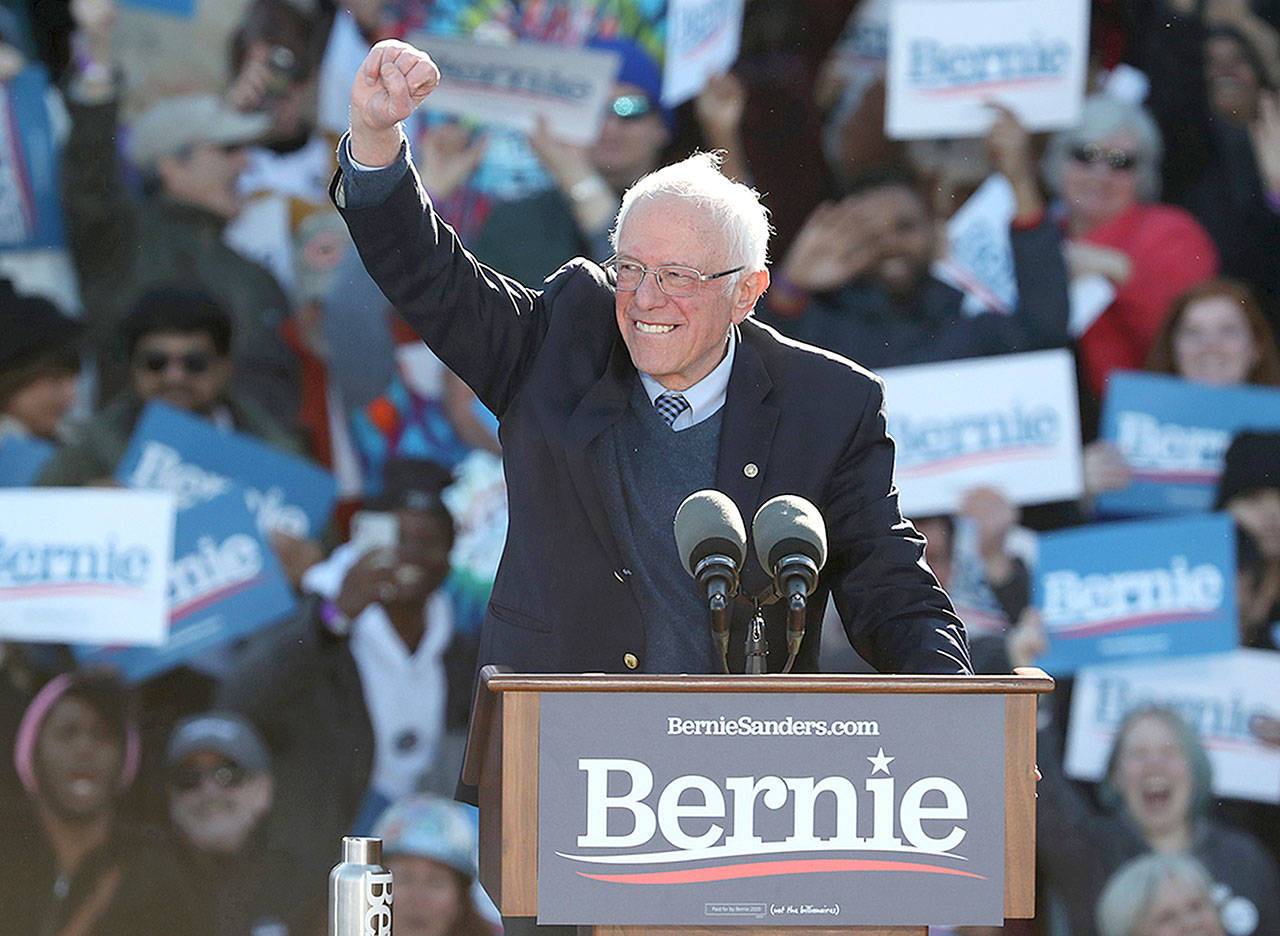By Matt Pearce and Evan Halper
Los Angeles Times
Bernie Sanders on Wednesday suspended an anti-establishment presidential campaign that changed the course of Democratic politics and energized large groups of new voters, but fell short of amassing a broad enough coalition to capture the nomination.
The Vermont senator’s decision came after his campaign stalled following a string of losses to former Vice President Joe Biden in large, delegate-rich states that left him with little chance of becoming the nominee. Yet Sanders came closer than any self-proclaimed socialist in U.S. history.
He rebounded off his 2016 loss to Hillary Clinton to emerge for a few weeks as the front-runner in the current Democratic primary, before second thoughts about the wisdom of nominating him and voter anxiety over the rapidly escalating COVID-19 pandemic moved Democrats to rapidly consolidate behind Biden. By the time Sanders dropped out of the race, Biden was already proceeding as the presumptive nominee, vetting potential running mates.
Even while falling short of the nomination, Sanders had a transformative impact on the Democratic Party. He upended old rules of money and politics, eclipsing his rivals in fundraising with a loyal army of nearly 2 million small donors whose contributions averaged $21.
Sanders successfully pushed the party to abandon the Clintonomics of the past in favor of a more progressive path, and he forced rivals to embrace a more expansive role for government.
Yet the Vermont senator struggled to expand his passionate base of supporters to the critical mass needed to win the race. He ultimately ran into the same electoral buzz saw in 2020 that he did in 2016, getting rejected by African Americans and suburban voters in many Sunbelt states whose support is essential to winning the nomination.
It was not for lack of effort. Sanders raised a passionate brigade of progressive volunteers, forged a near-unbreakable bond with younger voters and won over many Latinos, some of whom affectionately dubbed the 78-year-old Brooklyn native “Tio Bernie.” Sanders even survived a heart attack on the campaign trail in October only to see supporters double down on his candidacy.
Supporters cherish his consistency over more than four decades in politics, during which Sanders has never wavered from his democratic socialist agenda. But that stubbornness also cost the candidate with the mainstream voters he needed to win the nomination.
Sanders continued railing against the party “establishment,” sticking with his complimentary remarks about some of the policies of the Fidel Castro regime in Cuba even in the days leading up to the primary in Florida, with its large number of Cuban exiles and their families, and pillorying the news media until the final days of his campaign. Mainstream voters were unnerved.
Although Sanders’ base was smaller than in 2016 —when some Democrats backed him solely as an alternative to Clinton —and he conspicuously did not manage to generate the record turnouts he said his political revolution would need, he nonetheless thrived in what was initially a large and competitive 2020 Democratic primary field.
The senator emerged as the frontrunner in the 2020 race as progressives coalesced behind him while the several moderates in the race splintered the rest of the vote. Sanders was aided by head-to-head polls showing him as one of the most popular candidates against Trump in a general election.
He made healthcare the race’s defining policy issue, polarizing the Democratic field with his crusade to nationalize the patchwork private health insurance system under a universal “Medicare for All” federal program.
Before moderates ultimately consolidated around Biden and blocked Sanders’ path to the nomination, Sanders’ unusual coalition drove him to strong finishes in the campaign’s first contests, in Iowa and New Hampshire, followed by a decisive victory in the Nevada caucuses.
At casino caucus sites along the Las Vegas Strip, Sanders’ Silver State victory was boosted by members of the state’s powerful Culinary Workers Union, many of whom ignored their leaders’ sharp criticism of Sanders’ healthcare proposal, which would eliminate the union’s high-quality private insurance.
It was the high-water mark of Sanders’ campaign. But within a week of his Nevada victory, the tide had turned. It became clear that Sanders, whose 2016 campaign was derailed by voters in the South, had not made the inroads needed to power through that part of the country in 2020, either.
At a debate in South Carolina, Sanders’ opponents and the moderators chiseled at his record of complimenting some social programs of far-left governments.
“We’re not going to win these critical, critical House and Senate races if people in those races have to explain why the nominee of the Democratic Party is telling people to look at the bright side of the Castro regime,” said Pete Buttigieg, former mayor of South Bend, Ind.
“Let us be clear: Do we think healthcare for all, Pete, is some kind of radical, communist idea?” Sanders shot back.
In South Carolina, black voters broke for Biden en masse after the state’s influential Rep. James E. Clyburn announced his support for the former vice president’s struggling campaign, one of the most consequential presidential endorsements in recent history.
After Biden’s runaway win, and with Super Tuesday just three days away, the once-large Democratic primary field quickly consolidated behind his candidacy. Buttigieg and Minnesota Sen. Amy Klobuchar dropped out of the race and immediately endorsed Biden, joined by former rival Beto O’Rourke of Texas.
In a single weekend, the presidential campaign had been flipped on its head. Black voters, the backbone of the Democratic Party, were firmly in Biden’s camp. Undecided voters and the former supporters of his opponents flocked to the well-known party leader.


